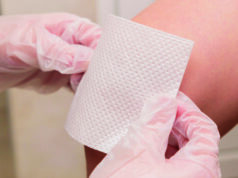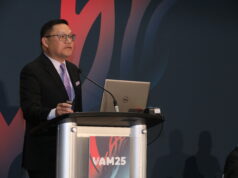
The Society for Vascular Surgery (SVS), in collaboration with the Society for Vascular Nursing (SVN) and the American Podiatric Medical Association (APMA), has designed an interprofessional curriculum to meet the needs of vascular wound care teams. As the collaborating organizations emphasize, this initiative marks the first of its kind in vascular-specific wound care.
The organizations have shared several promotional videos on social media featuring specialists who promote the course, highlighting the necessity of collaboration between the organizations.
“To prevent amputations takes a team—you can have the best vascular surgeons in the world and the best podiatrist, and if they’re not part of a cohesive team that includes ultrasound techs, nurses, nurse practitioners, advanced providers and wound care people, you’re not going to get the results that you want,” said Joseph Mills, MD, Reid professor and chief of the Division of Vascular Surgery and Endovascular Therapy at Baylor College of Medicine in Houston, in one of the circulating videos.
The Wound Care Curriculum is a combination of on-demand content and an in-person hands-on workshop. The SVS VascuLEARN platform includes 27 on-demand short videos covering essential wound care topics for the online portion. Registrants can purchase the online module independently or participate in a hands-on workshop immediately following the Vascular Annual Meeting (VAM) in New Orleans on June 7.
Additional workshops will be held in conjunction with VAM 2026 and VAM 2027. Each workshop will focus on hands-on practical application
of wound care procedures/techniques and showcase advancements. The 2025 workshop will focus on debridement techniques, dressing management and oxygen therapy.
“Our APMA members, podiatrists, collaborate with members of the SVS and SVN every day to care for patients, so it makes sense for us to work together at the association level to put on the Wound Care Curriculum,” said Dyane E. Tower, DPM, vice president of clinical affairs and the medical director of the APMA.
Tower points out that collaboration and the Wound Care Curriculum highlight the increasing focus on teamwork among professions and that “each provider type has a specific role to fill in caring for these patients.”
VAM has previously presented content on wound care, but the results from the 2021 and 2024 Educational Needs Assessments revealed significant gaps in wound care knowledge and practices within vascular teams.
In response to these findings, Alisha Oropallo, MD, and Kathleen Raman, MD, developed a comprehensive Wound Care Curriculum to address these issues. Both vascular surgeons presented the concept of the curriculum through an official business plan request to the SVS Education Council. Following approval of the concept, the SVS team worked to formally partner with the SVS PA Section, the SVN and the APMA.
Oropallo calls the curriculum “groundbreaking, as it fills a critical educational gap for interdisciplinary vascular wound care teams.”
Through its hybrid course, the Wound Care Curriculum will offer registrants “a foundational understanding of vascular wounds and then exposure to real-world cases that are addressed in daily practice,” said Orapallo.
Alan J. Block, MD, DPM, a podiatry specialist, shared his perspective on the potential impact of a unified approach to wound care. Drawing from his experience at Ohio State University, Block illustrated how a thorough understanding of patients’ health issues could lead to more effective treatment. For instance, he noted the importance of interpreting ankle-brachial index (ABI) test results, stressing that even subtle abnormalities, such as a reading of 0.9, require urgent attention, especially in asymptomatic patients.
“We wouldn’t ignore a cancer diagnosis until it reaches stage four; similarly, we must address vascular issues before they escalate,” said Block. He detailed the significance of monitoring ABI values, explaining that higher readings could indicate calcification, progressing toward critical limb ischemia if left untreated. Block will participate as faculty in the masterclass workshop in June.
The curriculum offers continuing medical education (CME), continuing education units (CEUs) and continuing education (CE) credits in podiatric medicine, ensuring that participants are well-equipped to tackle the challenges of vascular wound care in the future.
“Our mission is to equip healthcare professionals with the knowledge and skills to provide state-of-the-art care, ultimately improving patient outcomes and enhancing the quality of life for countless individuals facing vascular wounds,” said Raman.
To learn more, visit vascular.org/WoundCare.












